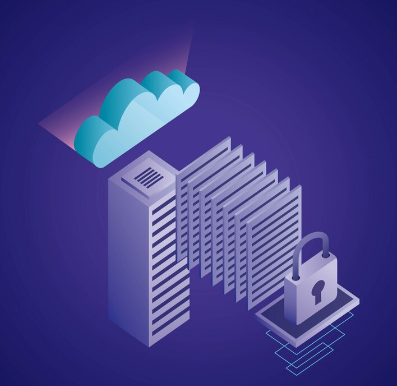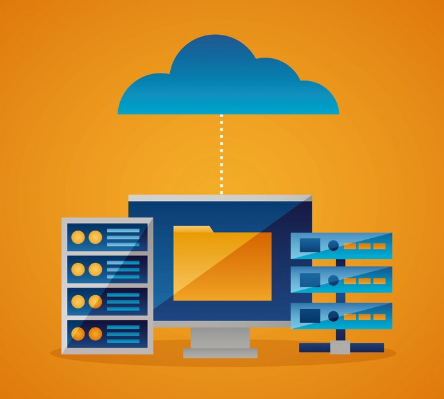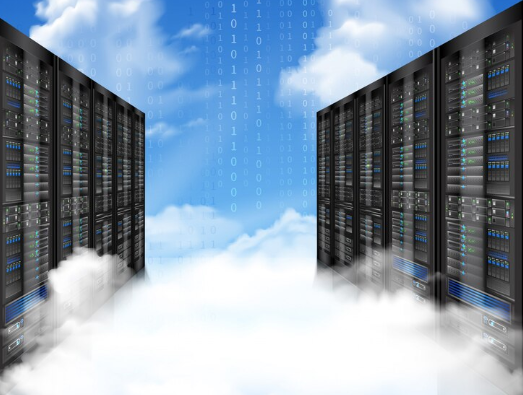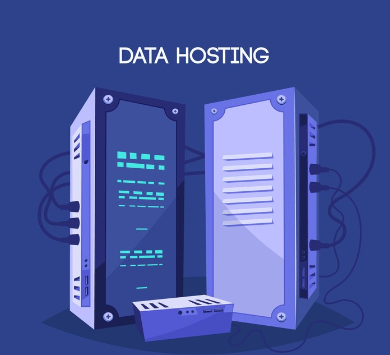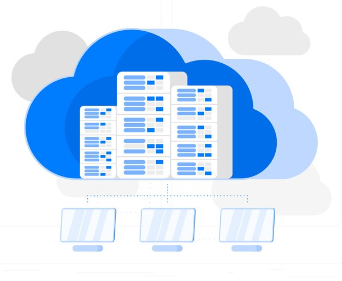Cloud Dedicated Server
In today’s rapidly evolving digital landscape, businesses are increasingly turning to advanced computing solutions to meet their ever-growing needs.
Among these solutions, the Cloud Dedicated Server stands out as a powerful and versatile option. Let’s delve into what exactly a Cloud Dedicated Server is, its evolution in the realm of computing, and its key features and benefits.
What is a Cloud Dedicated Server?
At its core, a Cloud Dedicated Server is a robust infrastructure solution that combines the reliability and performance of a dedicated server with the flexibility and scalability of cloud computing.
Unlike traditional dedicated servers, which are physically hosted on-premises or in data centers, cloud-dedicated servers operate within virtualized environments, offering a plethora of advantages to businesses of all sizes.
Definition and Explanation
A Cloud Dedicated Server, often referred to as a Virtual Private Server (VPS) or Cloud Server, is essentially a virtual machine that runs its own copy of an operating system.
However, unlike shared hosting environments where multiple users share resources on a single server, a Cloud Dedicated Server provides dedicated resources, including CPU, RAM, and storage, ensuring optimal performance and security.
Key Features and Benefits
The hallmark features of a Cloud Dedicated Server include:
- Isolation: Each server operates independently within a virtualized environment, ensuring enhanced security and stability.
- Scalability: Businesses can easily scale their resources up or down based on demand, thanks to the dynamic nature of cloud infrastructure.
- Customization: Users have full control over their server configurations, allowing them to tailor resources to their specific needs.
- High Availability: Cloud Dedicated Servers often come with built-in redundancy and failover mechanisms, ensuring minimal downtime and maximum reliability.
Evolution of Cloud Computing
The concept of cloud computing has come a long way since its inception, revolutionizing the way businesses approach IT infrastructure. Let’s take a brief journey through its evolution and understand its significance in modern computing.
Brief History
Cloud computing traces its roots back to the 1960s when the concept of time-sharing allowed multiple users to access a single computer simultaneously.
However, it wasn’t until the late 1990s and early 2000s that the modern cloud computing paradigm began to take shape, with pioneers like Amazon Web Services (AWS) and Google Cloud Platform (GCP) paving the way for scalable, on-demand computing resources.
Importance in Modern Computing
In today’s digital era, cloud computing has become indispensable for businesses looking to innovate and stay competitive.
Its ability to provide flexible, cost-effective solutions for hosting, storage, and computing has transformed the way organizations operate, enabling them to adapt to rapidly changing market conditions and scale their operations seamlessly.
Understanding Cloud Dedicated Servers
Now that we have a basic understanding of what cloud computing is and its historical context, let’s delve deeper into the inner workings of Cloud Dedicated Servers and the various types available.
How Does a Cloud Dedicated Server Work?
At its core, a Cloud Dedicated Server operates within a virtualized environment, utilizing underlying physical hardware to host multiple virtual machines (VMs). Let’s break down the mechanics of how these servers function.
Infrastructure Overview
A Cloud Dedicated Server relies on a distributed network of physical servers, storage devices, and networking components, interconnected to form a cohesive infrastructure.
This infrastructure is managed by a hypervisor, which partitions the physical resources into virtual machines, each running its own instance of an operating system.
Resource Allocation Mechanisms
Resource allocation in a Cloud Dedicated Server environment is typically managed through hypervisor-level controls, allowing administrators to allocate CPU, RAM, and storage resources to individual VMs based on predefined policies or user-defined settings. This ensures optimal resource utilization and performance across the virtualized environment.
Types of Cloud Dedicated Servers
Cloud Dedicated Servers come in various flavors, each catering to different use cases and deployment scenarios. Let’s explore the three primary types of Cloud Dedicated Servers: Public, Private, and Hybrid.
Public Cloud Dedicated Servers
Public Cloud Dedicated Servers are hosted and managed by third-party cloud service providers, offering a scalable and cost-effective solution for businesses seeking on-demand computing resources without the burden of managing physical infrastructure.
Private Cloud Dedicated Servers
Private Cloud Dedicated Servers, on the other hand, are deployed within a dedicated environment, either on-premises or hosted by a single organization.
This offers greater control over security and compliance, making it ideal for businesses with stringent regulatory requirements or sensitive data.
Hybrid Cloud Dedicated Servers
Hybrid Cloud Dedicated Servers combine the best of both worlds, leveraging a mix of public and private cloud resources to meet varying workload demands.
This hybrid approach enables organizations to maintain critical workloads on-premises while taking advantage of the scalability and flexibility of the public cloud for less sensitive applications.
Advantages of Using a Cloud Dedicated Server
Now that we have a solid understanding of how Cloud Dedicated Servers operate and the different types available, let’s explore the myriad advantages they offer to businesses of all sizes.
Scalability and Flexibility
One of the most significant advantages of Cloud Dedicated Servers is their unparalleled scalability and flexibility.
Unlike traditional dedicated servers, which often require manual intervention to scale resources, Cloud Dedicated Servers allow businesses to allocate additional CPU, RAM, and storage on-demand, ensuring they can adapt to fluctuating workload requirements effortlessly.
On-Demand Resources
With Cloud Dedicated Servers, resources are provisioned dynamically, meaning businesses only pay for what they use.
This pay-as-you-go model eliminates the need for upfront capital investment in hardware, making it an attractive option for startups and small businesses with limited budgets.
Elasticity of Workloads
Cloud Dedicated Servers offer elastic scaling capabilities, allowing businesses to scale their resources up or down in real-time based on demand.
Whether experiencing a sudden surge in website traffic or launching a new application, businesses can seamlessly adjust their server configurations to accommodate changing workload requirements without disruption.
Enhanced Performance and Reliability
In addition to scalability and flexibility, Cloud Dedicated Servers offer enhanced performance and reliability compared to traditional hosting solutions. Let’s explore some of the key factors contributing to their superior performance and reliability.
Dedicated Resources
Unlike shared hosting environments where resources are shared among multiple users, Cloud Dedicated Servers provide dedicated resources to each virtual machine, ensuring consistent performance and eliminating the risk of resource contention.
High Availability and Redundancy
Cloud Dedicated Servers often come with built-in redundancy and failover mechanisms, ensuring high availability and minimizing the risk of downtime.
In the event of hardware failure or maintenance activities, virtual machines can be seamlessly migrated to alternate hosts, minimizing disruption to business operations.
Cost-Efficiency
While the performance and reliability benefits of Cloud Dedicated Servers are compelling, perhaps the most significant advantage is their cost-efficiency.
Let’s explore how Cloud Dedicated Servers can help businesses reduce infrastructure costs and optimize their IT spending.
Pay-As-You-Go Model
Cloud Dedicated Servers operate on a pay-as-you-go pricing model, meaning businesses only pay for the resources they consume.
This eliminates the need for upfront capital investment in hardware and allows businesses to align their IT spending with actual usage, optimizing costs and maximizing ROI.
Reduced Infrastructure Costs
By leveraging cloud infrastructure, businesses can significantly reduce their hardware and maintenance costs associated with traditional on-premises servers.
With Cloud Dedicated Servers, there’s no need to purchase and maintain costly hardware, as infrastructure resources are provided and managed by the cloud service provider.
Conclusion
In the tapestry of modern computing, Cloud Dedicated Servers emerge as the veritable cornerstone, underpinning the digital infrastructure of tomorrow.
From scalability and performance to resilience and cost-efficiency, they embody the epitome of hosting excellence, empowering businesses to transcend the constraints of yesteryears and embrace the limitless possibilities of the cloud era.
As we bid adieu, let us reaffirm our faith in the transformative potential of Cloud Dedicated Servers, heralding a future where innovation knows no bounds.
